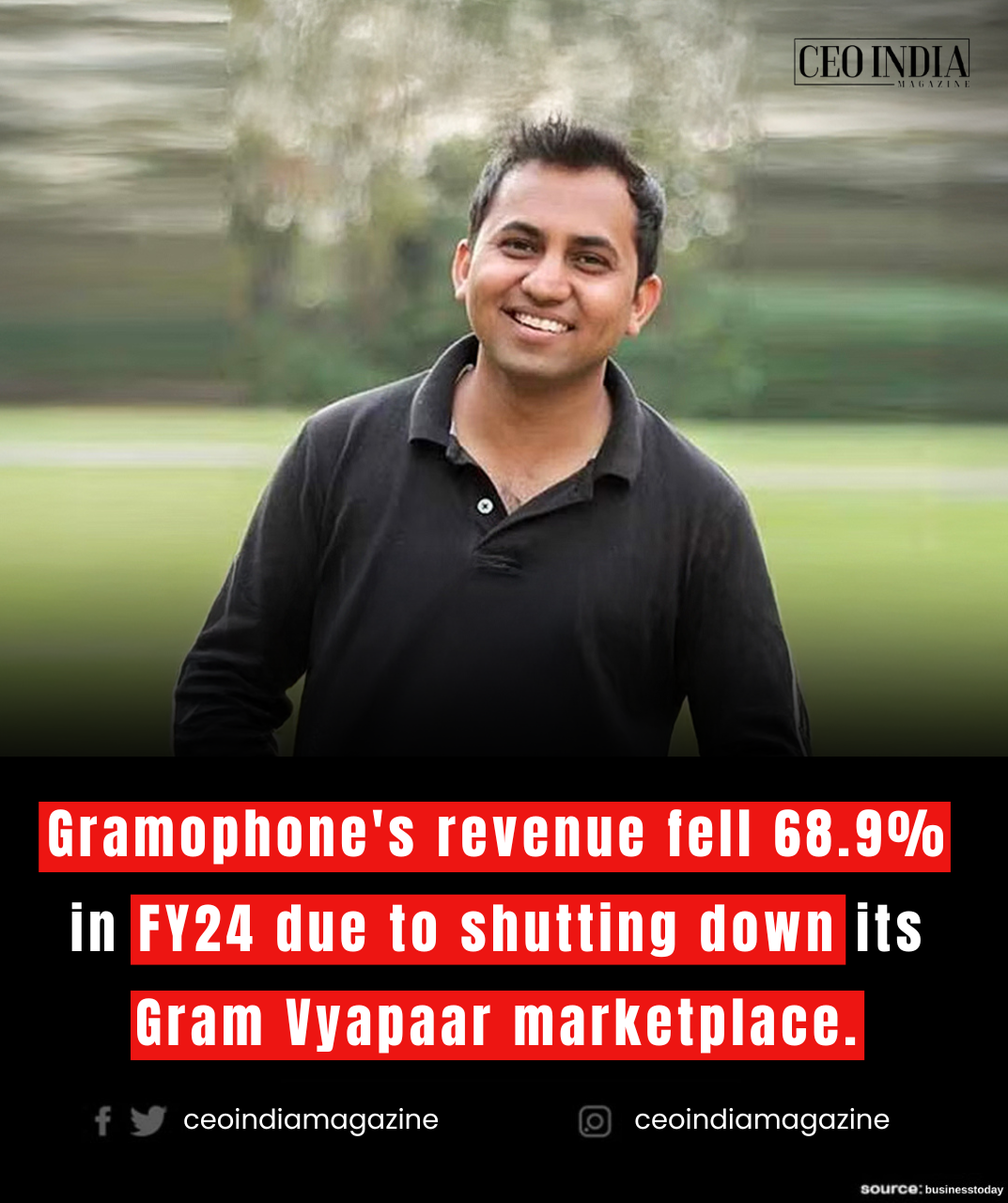Gramophone’s Revenue Fell 68.9% in FY24 Due to Shutting Down Its Gram Vyapaar Marketplace
Gramophone, a leading agritech startup backed by Info Edge, experienced a sharp decline in revenue for the financial year 2023-24 (FY24), with a drop of 68.9%. The company’s revenue for FY24 stood at INR 98.2 Crore, down significantly from INR 315.7 Crore in FY23. This substantial dip in earnings is primarily attributed to the startup’s decision to shut down one of its key business verticals, Gram Vyapaar, which had accounted for a large portion of its revenue in the previous year.
Founded in 2016, Gramophone offers a full-stack agritech platform designed to support farmers by providing information, advice, and farm inputs such as seeds, fertilizers, and pesticides. The company has made strides in the Indian agriculture sector, leveraging technology to help farmers improve yields, enhance productivity, and make informed decisions based on data-driven insights. Gramophone’s core services focus on farm advisory and the sale of agricultural inputs, positioning itself as a comprehensive solution to address the challenges faced by Indian farmers.
In addition to these core offerings, Gramophone launched Gram Vyapaar, an online marketplace that allowed farmers to directly sell their agricultural produce to buyers, bypassing traditional middlemen. The goal of Gram Vyapaar was to empower farmers by offering better pricing, increasing their profit margins, and providing them with a broader customer base. By FY23, this marketplace business was responsible for generating about 70% of the company’s total revenue, making it a crucial part of Gramophone’s financial model.
However, despite the revenue generated by Gram Vyapaar, the business model proved to be unsustainable. The marketplace was characterized by low margins and high capital investment, making it challenging to scale profitably. Tauseef Khan, the founder and CEO of Gramophone, explained that while the output business contributed significantly to the company’s top line, the margins were “very thin” and the business model was “low-margin and high capital.” As a result, the company made the decision to shut down Gram Vyapaar in FY24, a move that led to the sharp decline in revenue for the year.
“The reason behind the sharp decline in revenue was because the company closed down its output (marketplace) business in FY24,” Khan said in an interview. He elaborated that the marketplace was a capital-intensive operation that did not offer the profitability needed for long-term growth. While the decision to close the marketplace business resulted in an immediate revenue loss, it allowed the company to refocus its efforts on more sustainable and profitable segments of its business.
The closure of Gram Vyapaar reflects a broader trend in the agritech sector, where startups are reassessing their business models to ensure sustainability in a competitive and often volatile market. Many agritech companies face challenges in achieving profitability, as the sector is plagued by thin margins, seasonal demand, and logistical hurdles. Gramophone’s decision to pivot away from the marketplace business was a strategic move to streamline operations and focus on areas with better profit potential, such as farm input sales and advisory services.
Looking ahead, Gramophone remains committed to its core mission of improving the livelihoods of farmers through technology-driven solutions. While the closure of Gram Vyapaar had a significant financial impact in FY24, the company is now in a position to concentrate on its core strengths, including providing farmers with valuable inputs and data-driven guidance. As the company refines its business model, its ability to leverage technology and create sustainable revenue streams will be key to its long-term success in the agritech sector.










Leave a comment